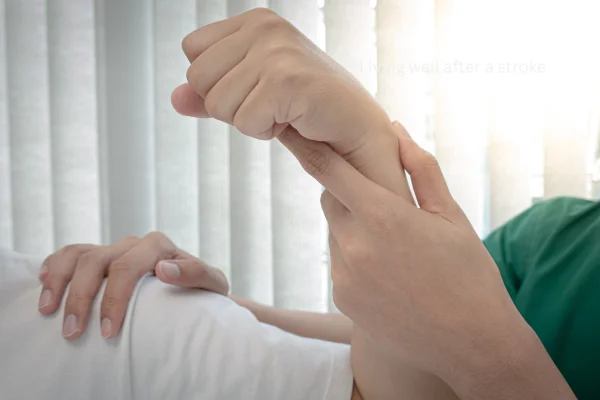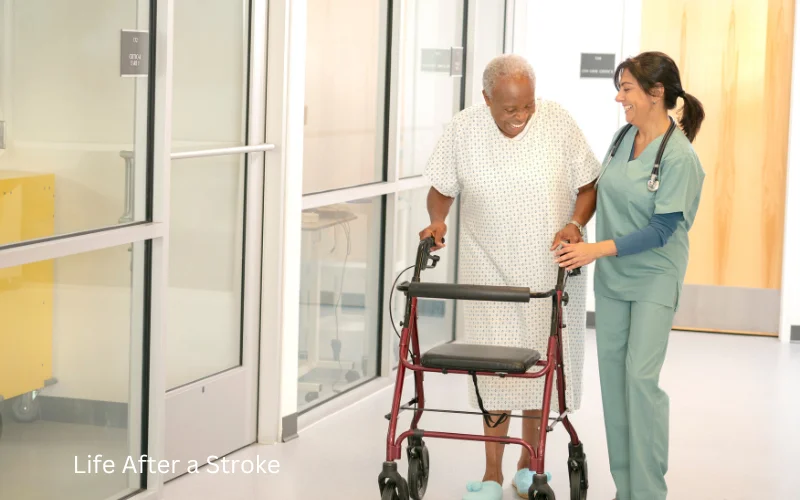Coping with Childlike Behavior Post-Stroke

A major medical event can turn life upside down—not only for someone experiencing it but also for friends and family. One of hardest parts afterward is noticing changes in how someone acts, communicates, or moves through daily routines. Such shifts can feel confusing, exhausting, and even heartbreaking for loved ones. This guide explores what these changes may look like, why they happen, and ways to respond with patience and compassion. Aim is to create stability and help everyone regain routine, confidence, and connection.
What Does It Look Like When Someone Acts Childlike After One?
After a serious brain incident, a person may begin interacting with the world in ways that feel unfamiliar to those around them. Reactions can appear more impulsive, sensitive, or even childlike. These shifts may show up as:
Emotional Instability: Sudden laughter or tears, often without an obvious reason.
Impulsivity: Quick decisions or actions without considering consequences—blurting out something awkward or taking a risky step on a whim. Pausing to anticipate outcomes or reactions may be difficult.
Dependence: Leaning heavily on others for daily tasks or choices, similar to a child’s reliance.
Playfulness: A newfound curiosity or sense of fun that feels out of character.
Reduced Inhibitions: Saying or doing things that would normally feel socially inappropriate or unfiltered.
Such changes can be unsettling for both a person experiencing them and loved ones, especially if independence and calmness were once defining traits. These transformations usually arise from damage to specific brain areas and are not intentional. Understanding this can foster patience and compassion during challenging moments.
Why Do These Changes Appear After One?
When oxygen-rich blood supply gets disrupted due to blockage or internal bleeding within the head, regions responsible for reasoning, reactions, and social connection can be impacted. This change often reshapes how a person speaks, responds to situations, or relates to others around them. Because of this, actions may appear more impulsive, inconsistent, or reliant on others compared to earlier patterns. Common signs often include:
Frontal Lobe Impact: This area manages complex mental tasks like planning, organizing thoughts, making decisions, and anticipating outcomes. Injury here can make controlling impulses or filtering words difficult. People may speak without thinking, take risks without fully considering consequences, or show sudden bursts of laughter, irritation, or frustration at unexpected times. Usual systems for pausing or moderating reactions may be less effective, making daily routines and interactions unpredictable.
Limbic System Involvement: Key parts such as amygdala and hippocampus influence emotions, memory, and reactions. When disrupted, moods may swing unpredictably, responses can be stronger than usual, and handling situations may become more challenging.
Mental Shifts: Injury to specific regions can reduce problem-solving ability, limit concentration, and affect memory. Social situations may feel more challenging to manage, and actions can appear less mature or steady than they once were.
Psychological Effects: Going through such an incident, along with trouble managing daily tasks alone, can strongly influence thinking and interaction. At times, this shows up as a return to earlier patterns, such as seeking extra reassurance or acting childlike. Such responses are not deliberate; they often reflect an internal attempt to cope with stress, fear, or uncertainty. Leaning on familiar, simpler patterns can create a feeling of security when everything else feels confusing or overwhelming.
Recognizing Signs of Immature Actions
Noticing changes in a loved one after a serious medical event is an important first step in understanding and adapting to them. Common signs may include:
Emotional Lability: Rapid swings between laughter and tears, often without an obvious trigger.
Social Inappropriateness: Making jokes, comments, or gestures that do not match a setting or situation.
Attention-Seeking Patterns: Showing dramatic or exaggerated actions to gain notice from others. This may appear as frequent interruptions, repeated requests for reassurance, or habit of placing oneself at center of social settings, often signaling strong desire for recognition or connection.
Difficulty with Abstract Thinking: Struggling to grasp complex ideas or follow deep conversations.
Playfulness: Showing curiosity or a sense of wonder that may seem out of step with previous personality or age.
It’s essential to approach these behaviors with empathy and understanding, as they are not deliberate but rather a reflection of the brain’s struggle to adapt after a stroke.
Impact on Relationships and Daily Life
Action-related changes following a serious medical event can place heavy strain on personal relationships plus daily routines. Loved ones may step into roles resembling constant supervision or added assistance, shifting dynamics with partners, siblings, or friends. This situation often brings frustration, sadness, or tension at home. At same time, a person going through these changes may feel uncertain about personal actions, leading to unease plus reduced confidence. Together, these factors can make rebuilding trust, restoring balance, plus regaining a sense of normalcy more difficult.
In group settings or public gatherings, youthful or uninhibited actions can create awkward or uncomfortable moments. Friends, neighbors, or coworkers who once shared close bonds may feel unsure how to respond, and they may experience puzzlement, hesitation, or embarrassment. Over time, some may pull back, leaving one person feeling isolated or overlooked, which weakens connection within a group. People guiding or managing daily routines may find these shifts mentally plus physically draining while juggling calm responses, empathy, plus ongoing responsibilities.

Coping Strategies for Stroke Survivors and Caregivers
Changes in how someone reacts or responds can be challenging to manage, both for them and for people around them. Still, practical approaches exist to handle these moments gradually. Here are some thoughtful strategies for individuals experiencing this period and for those guiding them along the way:
For Those Who Have Experienced It:
Cultivate Self-Awareness: Take time to observe thoughts, reactions, plus daily routines. Keeping a journal or having thoughtful conversations with a trusted professional can reveal repeating patterns and highlight situations that tend to trigger strong responses. Over time, this awareness can offer valuable insight into personal reactions plus thought patterns.
Engage in Cognitive Exercises: Activities like puzzles, reading, and memory games can help strengthen cognitive functions and improve emotional regulation.
Connect with Others Who Truly Understand: Try joining a local group or online community where people gather to talk about similar experiences. Speaking with someone trained to guide conversations—like a therapist—can also offer relief. Sometimes, just knowing you’re not alone in what you’re going through makes a huge difference. Sharing your story and hearing others’ can bring a sense of peace, belonging, and renewed perspective.
Set Realistic Goals: Focus on small, achievable goals to rebuild your confidence and independence.
For Caregivers:
Learn and Understand: Take time to study how specific medical conditions can influence how someone thinks, reacts, and interacts with others. Gaining insight into what’s really going on beneath the surface can make it easier to respond with kindness, patience, and a steady presence.
Establish Routines: Consistent daily habits can provide a sense of stability and security for them.
Use Positive Reinforcement: Encourage and praise them when they do well to reinforce progress.
Look After Yourself: Helping someone on their healing journey can be exhausting—both mentally and physically. Make time for your own rest, hobbies, and connections with others. Whether it’s stepping outside for a walk, enjoying a quiet moment with a book, or catching up with a friend, these small moments can recharge your energy. And if it ever starts to feel like too much, don’t hesitate to step back and bring in someone you trust to step in for a while.
For Both:
Speak Honestly: Open and compassionate communication is essential for overcoming challenges and supporting each other through recovery.
Be Patient: Recovery happens gradually, and setbacks are normal. Celebrate small victories along each step.
Professional Interventions and Therapies
In some cases, professional interventions may be necessary to address childlike behavior after a stroke. Here are some options to consider:
Speech and Language Therapy: If a condition has affected communication skills, a speech therapist can guide someone in regaining ability to express thoughts clearly.
Occupational Therapy: They help individuals regain independence by improving daily living skills and adapting to everyday tasks.
Cognitive Behavioral Therapy (CBT): CBT can help survivors manage emotional outbursts and develop healthier coping mechanisms.
Medication: In some cases, medications may be prescribed to manage mood swings, depression, or anxiety.
Role of Patience and Compassion
Moving forward takes dedication plus steady perseverance. For someone navigating shifts in reactions or responses, this journey can feel especially challenging. With consistent guidance, encouragement, plus supportive surroundings, it becomes possible to adjust, regain stability, plus begin building a life filled with purpose and satisfaction.
Walking beside a loved one during a difficult stretch means holding one central truth—they remain same person inside. Even when moods, reactions, or ways of connecting feel unfamiliar, meeting them with kindness plus empathy creates space where they feel seen and valued. This gentle mindset often plays an important role in rebuilding connection and rediscovering who they truly are.
How Can Caregivers Manage This Behavior Without Feeling Overwhelmed?
Managing this kind of change calls for a steady mix of calm support plus thoughtful attention. Creating consistent daily routines adds comfort and predictability, bringing stability for everyone involved. Offering small, manageable choices also builds confidence, letting someone take part in shaping daily moments while keeping a sense of control.
Soft-spoken, reassuring conversations can make a big difference during moments of uncertainty or frustration. Instead of criticism or a controlling approach—which can lead to resistance or setbacks—it works better to respond with warmth and gentle encouragement. Celebrating even small steps forward, through kind words or modest gestures, builds confidence and keeps progress moving in a positive direction.
When challenges accumulate and managing everything alone becomes exhausting, reaching out can be a strong, proactive step. Experienced peers, community groups, or specialists familiar with similar journeys can provide strategies that work, share insights, and bring clarity. These connections can ease pressure, make routines smoother, and open new ways to approach day-to-day life.
Can what someone eats affect how they act or feel afterward?
What someone eats throughout a day can have a greater impact than expected on energy levels and mental clarity. Including foods such as salmon, walnuts, leafy greens, colorful vegetables, fresh fruits, and whole grains can promote steadier focus and endurance. Staying hydrated while limiting sugary snacks and heavily processed items may help prevent sudden energy drops or moments of mental fog. While diet alone does not fix everything, it plays an important role in keeping daily routines more balanced and consistent.
Why might someone lose interest in hobbies or people they used to enjoy?
Many people find themselves drifting away from hobbies, social gatherings, or relationships once enjoyed. Tasks that once felt effortless may now demand more energy, while interests that previously brought joy can lose appeal. This does not always point to a serious concern—sometimes it reflects a season of adjustment or shifting priorities. Calm reassurance plus gentle encouragement, offered without pressure, can slowly bring back curiosity and renewed engagement.
Final Thoughts
Life can shift in an instant after a brain injury, often bringing emotional or personality changes that feel difficult to understand. These shifts can be unsettling for family and friends, especially when someone familiar begins reacting or behaving in unexpected ways. It helps to remember that these reactions stem from physical changes inside brain tissue, not from personal choice or true character. At core, that person remains who they have always been.
With time, steady guidance, and ongoing support, both individuals and loved ones can learn how to adapt to new patterns, routines, and relationships. Adjustment rarely feels easy, and setbacks may appear along way. Still, rebuilding a meaningful life—one shaped by empathy, encouragement, and small but real victories—remains possible.
If someone begins reacting or communicating in ways that feel unfamiliar after a serious medical event, it is important to know they are not alone. Local groups or community programs can offer insight, strategies, and connection with others facing similar experiences. While this journey may include challenges, a steady, patient approach can create balance and allow strength to grow with each passing day.
Key authoritative resources:
American Stroke Association — Explains how it can lead to emotional and personality shifts, including impulsiveness, apathy, or pseudobulbar affect, and offers ideas for rehabilitation exercises, counseling approaches, and peer support options that help people adjust and move forward.
National Heart, Lung, and Blood Institute (NHLBI) / National Institutes of Health (NIH) – Provides broad guidance on recovery, including movement training, speech and daily-skill rebuilding, plus ongoing emotional follow-up—helpful background for changes in mood, reactions, and personality as well.
RESCUE Stroke Caregiving (by U.S. VA / veteran-healthcare-based resource) — A fact sheet outlining action-related challenges following a serious medical event, including impulsiveness, anger, plus frustration, along with practical guidance for family supporters. Suggestions include seeking counseling, joining support groups, plus arranging professional evaluation.



